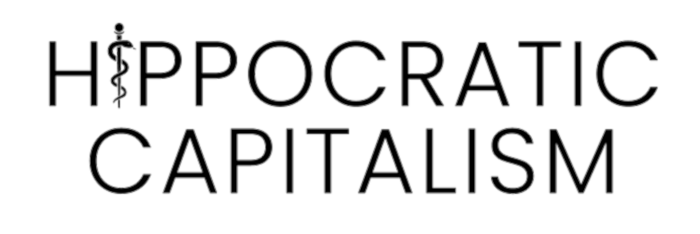Do We Need More Competition in Healthcare?

Peter Schickele, best known as the “discoverer” of PDQ Bach, died this past month at the age of 88. A classical music composer, humorist, and educator. Or, to use his own description, a professor of musical pathology at the [fictional] University of Southern North Dakota at Hoople. After seeing news of his passing in the New York Times and then listening to Terry Gross’s 1985 interview with him on Fresh Air, I proceeded to binge-watch Schickele videos on YouTube. You should definitely check out this 2006 Houston concert. Many years ago I’d heard an audio recording of Schickele’s symphony-as-sporting-event but it was much more fun on video. (Start watching at 54:40). Briefly, it’s the familiar first movement of Beethoven’s 5th symphony re-imagined as something in between a football game and a hockey game, conductor versus orchestra. Complete with cheerleaders, a penalty box (for hitting a wrong note), a fight breaking out between the conductor and the principal oboist, and color commentary supplied by former BYU quarterback Gifford Nielsen.
It got me thinking about the role of competition in different spheres. Contests and competition aren’t completely foreign to classical music. There are events like the Helsinki Violin Competition and the Cliburn piano competition. And the Grammys. And auditions for music school and orchestra spots are obviously competitive. But I would argue that competition plays a supporting role for classical music, rather than the primary role. Musical performance, like all of the arts, is more about collaboration.
And when you think of it, even the world of sports, which is in some ways the most purely competitive human endeavour, is pretty collaborative too. Think of runners in a marathon, most of whom are focused purely on their own performance rather than trying to outdo anyone else. Or young kids’ sports where everyone gets a chance to play.
So what can we say about the proper role of competition in business, such as in the healthcare industry?
On a recent episode of the Capitalisn’t podcast, University of Chicago economics professor Luigi Zingales responded to this question by invoking Adam Smith. According to Zingales, Smith’s The Wealth of Nations was the first book to identify competition as the force that links self-interest to community interest. Self-interest in the absence of competition leads to exploitation, whereas self-interest in the presence of competition is a driver of improvement to the whole system.
Expanding this out a bit, I think competition actually plays two different roles in our world. One is a positive feedback loop, and the other a negative feedback loop. The positive feedback loop is the one we tend to think about with sports and music, where competition is a motivator to improve and to excel. (Occasionally there are dark exceptions, where people like Tonya Harding compete by undermining their adversary. But again, those are the exceptions.)
The negative feedback loop is the one that we think about with pricing and labor markets, where the presence of competitors keeps people and organisations from taking advantage of each other. Why can’t we simply trust businesses to pay their employees fairly, and to price their products reasonably? Back to Adam Smith's ideas: In the presence of a strong profit motive, there’s just too much self-interest at play. Complicating this further, in our post-Milton Friedman, Baltimore Chancery Court era, for-profit corporations are widely understood to have a fiduciary duty to their shareholders to maximise profits. Competition in this setting becomes absolutely essential as a counterbalance.
So now let’s apply this to healthcare more specifically. Personally I like to envision healthcare as a blend of art and science and humanism, where the goal is to invent and discover and push ourselves and each other to perform at high levels. To keep getting better at curing disease and relieving suffering. In other words, a collaborative enterprise where competition might play a similar role as in classical music: competitive research grants, “auditions” for medical school and residency, prizes for the best papers at conferences, etc.
I suspect that this idea of healthcare as a humanistic, collaborative enterprise has aided the push toward larger, more integrated health systems over the past 30 years. If our goal is to maximise collaboration, why don't we start by getting all of the doctors and nurses in a region onto the same team? Same thing for the hospitals and clinics. Heck, let’s add in an insurance plan as well. What could go wrong?
I actually think this approach does work in some settings, but it requires a particular type of leadership that is able to maintain balance among the interests of all the various stakeholders. And that’s pretty hard to pull off. More commonly what you see these days is leadership by spreadsheet, where profits (“margin” if you’re technically a nonprofit) are supreme, and market distortions are likely in the absence of any significant counterbalance. Distortions such as Sutter Health, a nonprofit that dramatically raised prices in northern California after first eliminating competition through a series of acquisitions. Or the University of Pittsburgh, who has been accused of using a combination of non-compete agreements and the blacklisting of any nurse who has worked for a competitor in order to hold wages down.
Bottom line: Health systems and their leaders can’t have it both ways. They can’t claim to be all about social benefit in order to justify massive vertical and horizontal integration, and then turn around and behave in classically self-interested, profit-prioritising ways. Fortunately, the current Federal Trade Commission appears to recognise this problem, and it has ramped up scrutiny of healthcare mergers and acquisitions. In other words, fighting against monopoly and monopsony in healthcare just as they do with every other industry.
It’s sad that it had to come to this. That we have to enforce strict competition between hospitals and health systems, just as Schikele inserted competition into his absurd Beethoven’s Fifth. But that’s where we are right now.
